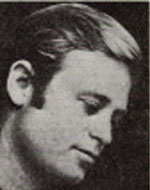Raphael, son of Rachel and Feivel, was born on August 3, 1944 in Ramat Gan, Raphael was drafted into the IDF in mid-May 1962 and assigned to the Artillery Corps, and his comrades in the unit tell him: “Ringo, that was his name in our group. It is doubtful whether more than two or three members of the mortars knew his full name. Everyone was known by his nickname. No one knew how this nickname stuck to him. Perhaps because of his blond hair, his long whiskers and the bristles of his beard, which he did not shave when he stood in the half-track, dusty with the dust of the desert, the figure of one of the western heroes, perhaps because his peace of mind, It was possible that he had the nickname ‘Ringo’ that every moment of rest in training, Rafi would lie on the ground, his hat hanging over his eyes and his legs bent El Al in a typical Western movie style, perhaps because the Westerners’ books were often adorned Blondes figures unshaven, wearing wide-brimmed bowlers, sticking out of his pockets. “Rafi was a good soldier. He played every role entrusted to him faithfully and efficiently, be it in the ordinary life of the battery, or in moments of tension. But Rafi was not only a good soldier, but also a good friend. Wherever one of his staff, or a neighbor’s team, was needed, wherever a volunteer was required to do urgent work, you could find Rafi. One of his hallmarks of the battery was his refined sense of humor, which always gave rise to laughter among his teammates. Another characteristic was Rafi, in which he distinguished himself from the rest of the staff, and this is his love, or rather his passion, for the written word. He had an inner need to read, read, read. Sometimes it does not even matter what. You would always see him and his hands or pockets in a book, a book, a newspaper, or anything else to read. Whenever books or newspapers came to the rampart, Raphi was the first to storm them and the first to swallow them with thirst. Even in recess, he found himself a quiet, reading corner. None of us dared disturb him at this moment. He hid the secret of writing the songs ‘successfully’ from all of us. None of us knew about it. After some of his chants were chosen for public performance by an army band and were appreciated, he did not come outRaphi was very distressed and told no one of his friends about the battery. He loved his hobby as a personal and intimate toy. “At the end of January 1965, when he returned to civilian life, Rafi continued to deal with his peddlers and worked with his father in the factory. On the 13th of Tishrei 5734 (October 13, 1973), the unit was in the movement, when notice was received of the approaching enemy planes. The men of the unit did their duty, and each shot his own weapon on the planes. One Egyptian plane was hit and fell between two of the unit’s half-tracks, and many soldiers, including Rafi, who was badly burned and died of his injuries, was brought to rest in the Kiryat Shaul cemetery, leaving behind a father and a sister.
